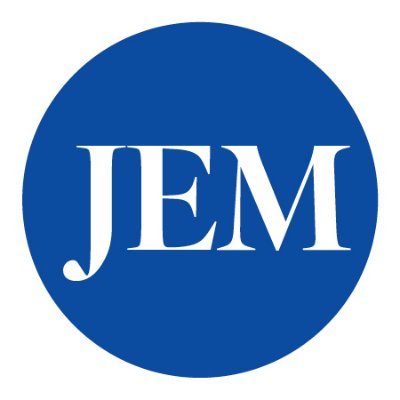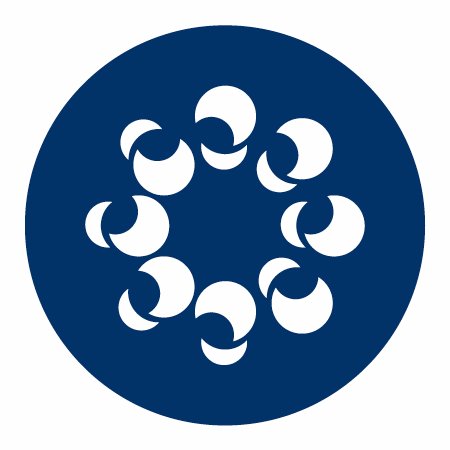
Casanova Lab
@casanova_lab
Followers
10K
Following
16K
Media
354
Statuses
6K
We're a research lab at Rockefeller University (NY) and Necker Hospital (Paris) studying human genetic and immunological determinants of infectious diseases.
Joined August 2018
Already 53 phenomenal papers published in the @jhumimmunity ! Look it up and submit your best papers to the only journal focused on human inborn errors of immunity, their phenocopies, and related topics in human immunology: https://t.co/UvXYTJkWV7
rupress.org
Journal of Human Immunity (JHI) publishes papers that provide novel insights into the physiology and pathology of human immunity through the study of genetic defects and their phenocopies, including...
0
6
26
We are pleased to introduce Natalie Cain as the Executive Editor of the journal! Natalie will guide the collaborative editorial process at JEM. Follow her at @NatalieCainSci. Learn more about Natalie 👉 https://t.co/Kcia3lR3ij
0
3
3
Dig into TACI and antibody deficiency on this new issue of JHI! (Among other very interesting articles!)
JHI's November issue is here! https://t.co/7lidf4BI1q Cover shows how genetic and immunologic modifiers shape the penetrance of TNFRSF13B variants, redefining their contribution to antibody deficiency. From @Abolhassanih et al. See https://t.co/TEQmtscECi
0
3
5
Kun Yang, Nan Yan and colleagues show that the STING pathway drives non-inflammatory #neurodegeneration in NGLY1 deficiency. https://t.co/MHLna6eGRQ 📘 In #Cytokines collection: https://t.co/6I1X9FQwz3
#Cytokines2025
0
2
21
Retrospective study from Gilbert, Ong, Farmer et al. highlights that acute use of nirmatrelvir/ritonavir significantly reduces the risk of post-acute sequelae of #SARSCoV2 infection (#longCOVID) in immunodeficient patients https://t.co/LIPgDqo1YI
#InbornErrorsOfImmunity #COVID19
0
3
5
Nirmatrelvir/ritonavir use reduces risk for long COVID in patients with immunodeficiency
0
1
7
.@jhumimmunity's November issue is here! https://t.co/zVL66nINnA Cover shows how genetic and immunologic modifiers shape the penetrance of TNFRSF13B variants, redefining their contribution to antibody deficiency. From @Abolhassanih et al. See https://t.co/Tak1MbkRMn
0
1
1
JHI's November issue is here! https://t.co/7lidf4BI1q Cover shows how genetic and immunologic modifiers shape the penetrance of TNFRSF13B variants, redefining their contribution to antibody deficiency. From @Abolhassanih et al. See https://t.co/TEQmtscECi
0
5
8
Great preview from @SanchoShimizu on the challenge of VUS in inborn errors of immunity and in general. AND on the fact that IEIs are likely more common than thought in general pop. https://t.co/UZ1URVhfB9 in @CellPressNews
1
8
19
Dominant genetically but recessive operationally 🙂 Genetically heterozygous - transcriptionally homozygous IRF7 deficiency underlies herpesvirus CNS infections in humans
rupress.org
This study identifies genetically heterozygous and transcriptionally homozygous deficiency of IRF7 as an inborn error of interferon immunity underlying her
0
7
28
More than a review: a detailed description of the principles to study any infectious disease, by the
covidhge.com
COVID Human Genetic Effort is an international consortium aiming to discover inborn errors of immunity underlying severe forms of COVID-19 in previously healthy individuals
In this review, Andreakos et al. report the progress of the COVID Human Genetic Effort since its launch 5 years ago, with the aim to understand clinical variability, from resistance to severe outcomes, among individuals exposed to #SARSCoV2. https://t.co/jRwUBCIl12
#COVID19
0
2
2
A superb and comprehensive Review: The systemic effects of 22q11.2 deletion syndrome on immunity
0
3
18
Now on PubMed: Improved outcome of HSCT in STAT1 gain-of-function disease following JAK inhibition bridging
0
2
12
Remarkably, the authors also observed that diagnostic delay had not decreased over a timespan of more than 30 years, suggesting that educational awareness efforts and diagnostic improvements have not yet made a measurable impact on timely diagnoses. #CVID
Noninfectious manifestations of CVID have not been formally summarized. In this systematic literature review, Ducasa et al. provide a comprehensive summary as a reference point for the field, revealing pervasive detrimental noninfectious manifestations. https://t.co/ZsrPaOHu7n
0
4
12
Hatterschide et al reveal that human trophoblasts activate a DUX4-driven antiviral program against herpesviruses, uncovering a non-IFN pathway that protects the placenta via DUX4-stimulated genes https://t.co/WPeyrxrvyo 📘 In #Cytokines2025 collection https://t.co/1TjVjTtsdi
1
7
34
Ober, Lenoir, @JRosain et al. report the same ultra-rare pathogenic noncoding single-nucleotide variant in the promoter of WAS in four male patients from two unrelated kindreds w/ features of Wiskott-Aldrich Syndrome. https://t.co/34WoK5emCM
@ESIDsociety
0
6
9
New review: Nicolai van Oers and Kathleen Sullivan summarize 22q11.2 deletion syndrome, which has complex clinical presentations, with congenital malformations of the thymus leading to many immune system changes. https://t.co/f1ioO75Gk8
@ClinImmSoc
#InbornErrorsOfImmunity
0
5
9
Noyer et al. @Feskelab show that a novel mutation in ORAI1 results in constitutive CRAC channel activation while abolishing stimulation-induced channel opening. The mutation is associated with severe immune dysregulation, incl. altered T & NK cell function https://t.co/egJQM1FRgs
1
4
7
Don't forget sequencing the promoter ! A WAS promoter variant underlying Wiskott-Aldrich syndrome in two kindreds
1
2
15
A fascinating genetic and mechanistic study: ORAI1 mutation with mixed loss- and gain-of-function properties causes immunodeficiency and HLH
0
2
14









